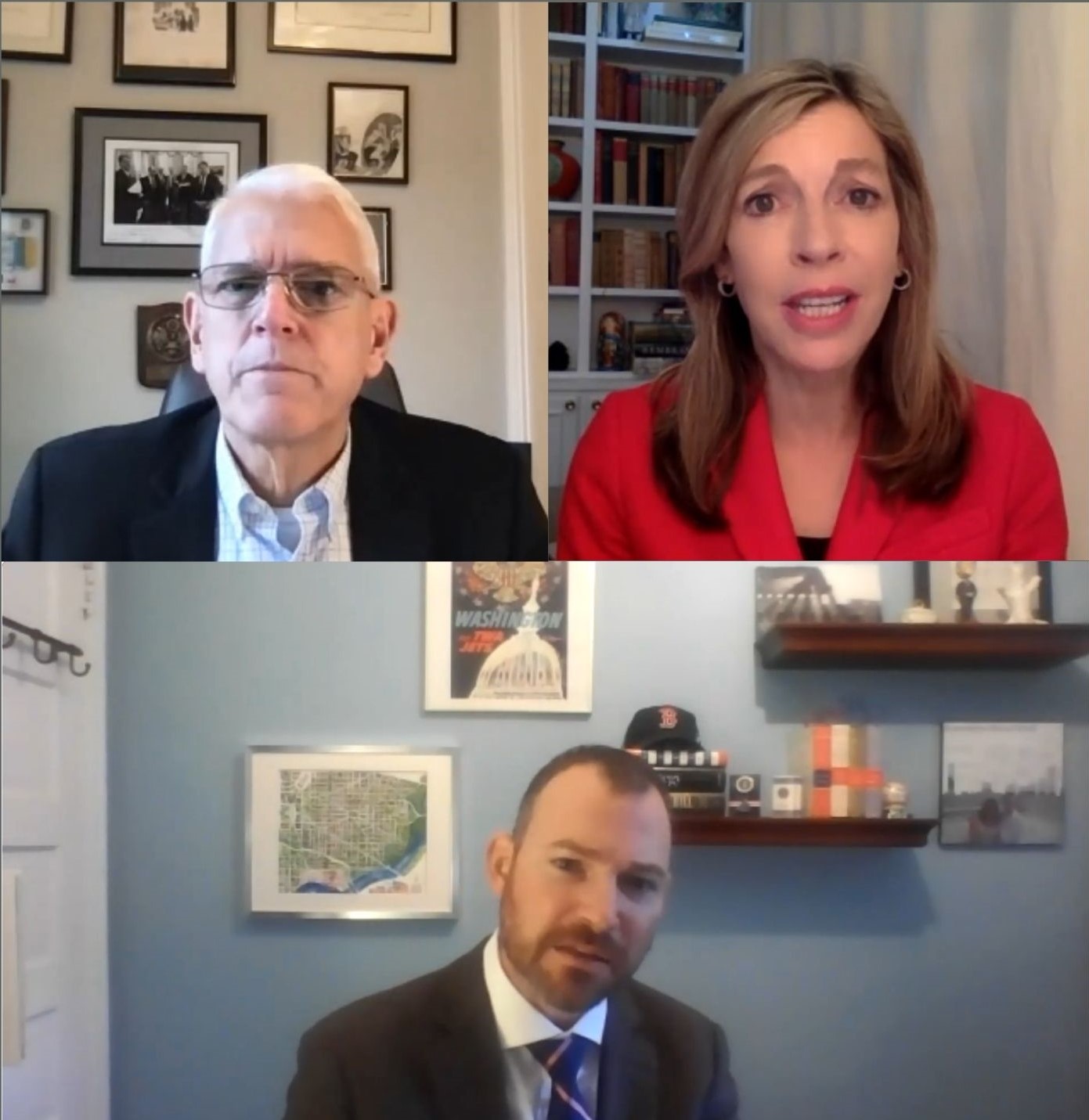 Panelists for the virtual event
Panelists for the virtual event
Event Recap: Addressing a Revanchist Russia
On December 3, the American Security Project held an on-the-record conversation entitled “Addressing a Revanchist Russia.” The virtual event was moderated by ASP CEO Patrick Costello and featured remarks from Ambassador Steven Pifer, a William J. Perry Research Fellow at the Center for International Security and Cooperation at Stanford University and former ambassador to Ukraine and Dr. Evelyn Farkas, Nonresident Senior Fellow at the Atlantic Council and a former Deputy Assistant Secretary of Defense for Russia/Ukraine/Eurasia.
The panelists addressed the sharp rise in tensions between Russia and Ukraine, Russian military movements along the Ukrainian border, their readiness as well as how the current situation compares with Russia’s military exercises in April. Notably, the current Russian troop buildup was enacted more covertly amidst a rapidly deteriorating relationship between Russia and Ukraine. Ambassador Pifer argued that the “West must be doing all it can to signal to the Russians that there would indeed be heavy costs for military action against Ukraine” and expressed skepticism that President Putin had prepared the Russian people for the costs associated with military action in Ukraine.
The concerns about Russia’s provocations take place in a broader geopolitical context. Panelists discussed how much of the current crisis is about Ukraine and the government of Volodymyr Zelensky and how much the situation is about Russia’s place in the geopolitical order and Putin’s desire to shape the broader European security dialogue. The NATO Summit declaration from the 2008 summit in Bucharest welcomed Ukraine’s (and Georgia’s) aspirations for NATO membership and invited them to submit Membership Action Plan (MAP) applications—Putin has repeatedly maintained that NATO enlargement is a threat to Russian national security and the matter has regularly been a point of tension in NATO-Russia relations. Ambassador Pifer and Dr. Farkas said that a policy of “not now, but not never” should be continued to assuage Russian concerns about enlargement.
Panelists also discussed potential flashpoints that might escalate the crisis; Russia’s provocations in the digital domain; how to enhance Ukrainian capabilities to deter Russia; economic support that the West can provide Ukraine and Ukraine’s internal challenges with corruption; and the range of options for American policymakers to de-escalate the crisis.





